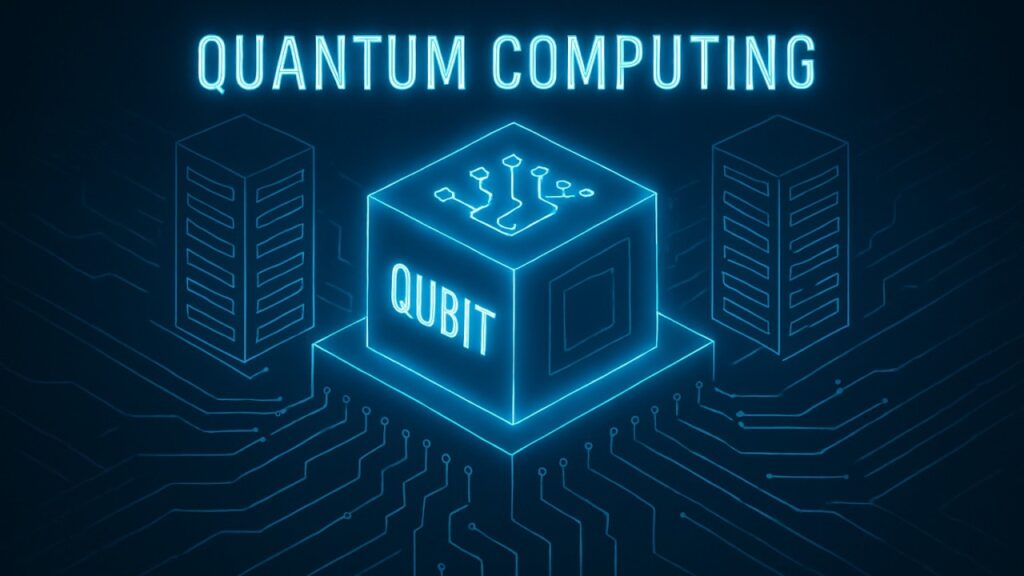Quantum Computing: Somewhere Between Theory and Infrastructure

Quantum computing has become the tech world’s latest obsession. For those who don’t know, I can recommend this IBM article. What once seemed like science fiction is getting closer to reality. With breakthroughs like Microsoft’s Majorana 1, Google’s Willow, and Amazon’s Ocelot chips, the field is moving from “someday” to “maybe sooner than we think.”
But let’s not get ahead of ourselves. This isn’t going to change the world overnight. It’s still early days. That said, for anyone in the data centre industry, whether you’re running a data centre, designing critical systems, or advising on long-term IT investments, the question that should be asked isn’t if quantum will matter, but when, and to what degree.
As data centre consultants at VIPA Digital, we don’t need to build quantum machines ourselves but we do need to understand how they’ll shape data centre’s design and operational requirements when engaging with future projects.
What Quantum Could Mean for Infrastructure?
The key thing to realise is that Quantum computing isn’t here to replace classical DC infrastructure, it’s more likely here to compliment it. These machines are built for a different class of problems, like training AI or solving complex optimisation problems that would take countless years for classical IT systems to process.
To simplify, a classical 8-bit processor can hold a number between 0 and 255 at any moment. An 8-‘qubit’ processor can represent every number between 0 and 255 simultaneously, allowing process to run in parallel exponentially. The performance implications are huge, but only for very specific use cases.
That’s why hyperscalers like AWS, IBM, and Google are already rolling out Quantum-as-a-Service (QaaS) platforms, offering access to early-stage quantum machines through the cloud. In this model, quantum hardware is housed in tightly controlled environments, while workloads are submitted remotely, much alike AI is today.
So, what does this mean for the data centre industry? It opens the door to premium, high-value workloads that require close integration between classical and quantum systems. But it also raises new engineering challenges. Quantum chips often need cryogenic cooling, electromagnetic shielding, and extreme environmental stability. Which current DC infrastructure is currently just not built for.
Will all DC operators be hosting quantum computers in ten years? Probably not. But there is a chance, given the current rate of technological development, that we will be asked to look at infrastructure that connects to it, and align with clients experimenting in this space.
Risks
With every new computing model comes a new set of vulnerabilities, and quantum is no exception.
The big headline is that quantum computers could eventually break today’s encryption methods. Algorithms to secure everything from emails to banking systems, would be easily cracked by a sufficiently powerful quantum machine. I would consider this a ‘now’ problem rather than a future issue: attackers can harvest encrypted data today, and decrypt it years later when the tech catches up. This threat has already prompted governments and industry leaders to push for post-quantum cryptography (PQC).
Are data centre operators and enterprise clients ready for that transition? Many aren’t even thinking about it yet. There are a magnitude of other engineering, operational and societal risks for quantum computing which can be found in the following links: UK Finance, Quantum Insider and ODATA.
There’s also the investment question. Startups in the quantum space are attracting serious capital from Investors and large tech companies. But commercial deployment of quantum computing could still be over 10 years away. So it is difficult to decipher when and where to place your bets.
My Thoughts…
This isn’t about chasing a hype or speculative upgrades of DC infrastructure. It’s about carefully reading the signals as this technology gains more traction.
As engineers and consultants, we help clients make smart, future focussed DC infrastructure decisions. This means asking the right questions…
- Should companies be tracking quantum startups and QaaS providers now for future partnerships and investment?
- Could quantum networking (via entanglement links) change how we think about interconnects and edge infrastructure?
- Will purpose-built quantum facilities emerge, the way AI and HPC sites have, or with the form a section of traditional data centres?
- Should post-quantum security be integrated into businesses before standards and regulations come in?
I don’t know what the answer to these questions are, but what I do know is quantum computing is no longer just a research topic and we should start thinking about it more diligently.
By Felix Maldonado